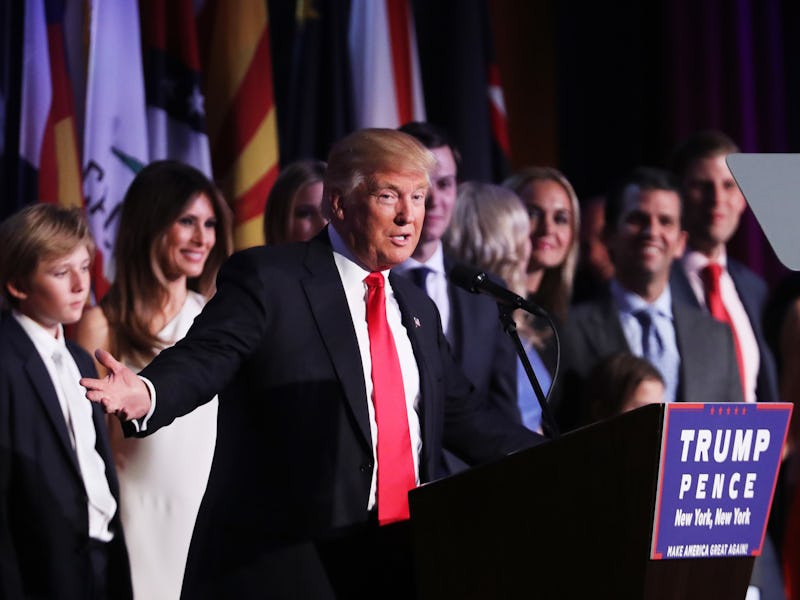Faithless Electors Could Stop Donald Trump, But They Won't
It's never going to happen.

On Tuesday night, the United States of America elected Donald J. Trump as its 45th president. Trump defeated his opponent, former Secretary of State Hillary Clinton, 279 electoral votes to 228 — or did he?
See, in the United States of America, the popular vote doesn’t really matter. Individual votes are tallied up in states. Whichever party wins that state gets to send its appointed “electors” to the Electoral College. The Electoral College then votes the next president, but in most states, there’s nothing in the law that says the electors have to vote for their party’s candidate.
Enter “faithless electors,” the term for an elector who decides, “Nah, I’m going to do my own thing,” and refuses to vote the way the winning party dictates. The popular vote happened on November 8, but the Electoral College doesn’t vote until December 19. And as many people have pointed out, Trump “won” in electoral college votes, but none of that’s official until December 19.
As Markira points out, Hillary Clinton, not Trump, won the popular vote nationwide. In a strict, direct democracy, Hillary Clinton would be the next president. But that’s not the system we live in, and in 21 of the 50 states, electors are locked into their party’s choice by law. But in others, the electors only face minor penalties, like fines, or sometimes no penalty at all if they decide to flip their vote to the other side.
As many people are pointing out, this means there’s still a chance that faithless electors could snatch the presidential election away from Donald Trump.
But it almost certainly won’t happen. The United States has been around for 240 years, but faithless electors have only flipped on their party 157 times. In other words, it’s really, really uncommon, and even when it does happen, it usually doesn’t affect the outcome of the election. Trump has a 51-vote lead over Clinton in electors, nominally, which means that at least 26 electors would have to ditch their faith to the Republican party and turn on Trump to change the results of the election. The largest number of faithless electors in any one contest was 63, when Horace Greeley, the Liberal Republican (an old party, not an modern oxymoron) candidate for president managed to die in between the popular vote and the electoral vote. His pledged electors voted for a combination of third and fourth-party candidates instead (except for three, who stayed true to old Horace after he had kicked it). To date, faithless electors have yet to be the deciding factor in any election.
Protests like this one on Wednesday night have sprung up all around the country.
There are four electors currently about to vote who have said they might switch, but they aren’t all Trump’s. Two of them, Robert Satiacum and Bret Chiafalo of Washington are Bernie-bros who have expressed reservations about voting for Clinton. Meanwhile, Baoky Vu, a Republican elector from Georgia, has said he couldn’t get on board with Trump because of the president-elect’s immigration policy. The only one who has actually said he would flip is Chris Suprun, a Republican from Texas, who said he might consider voting for Clinton in the past, but thought about it again and told Time that he was supporting Trump on election night.
And that’s about it. Regardless of how silly of a system the Electoral College may be, it’s not going to topple the results of the election anytime soon.